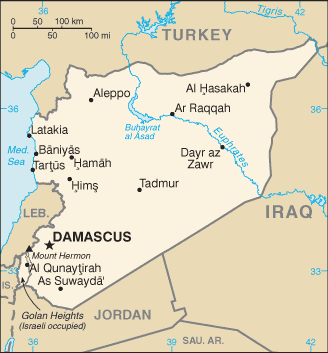In an effort to forestall the growing civil war in Syria, the Arab League is pushing a new proposal today in, which is being called the “Yemen Solution,” and is calling on Bashar Assad to transfer power to his top Vice President.
 The “Yemen Solution” is named after the GCC-led deal signed in Yemen to oust long-time Yemeni dictator Ali Abdullah Saleh in favor of US-backed military official Maj. Gen. Abd-Rabbu Mansour Hadi. Ironically, the solution has not worked particularly well in Yemen, as Saleh has been seen to have reneged on the deal and officials have raised the prospect of delaying the US-backed Presidential election, which would see Hadi running unopposed.
The “Yemen Solution” is named after the GCC-led deal signed in Yemen to oust long-time Yemeni dictator Ali Abdullah Saleh in favor of US-backed military official Maj. Gen. Abd-Rabbu Mansour Hadi. Ironically, the solution has not worked particularly well in Yemen, as Saleh has been seen to have reneged on the deal and officials have raised the prospect of delaying the US-backed Presidential election, which would see Hadi running unopposed.
Qatari Prime Minister Hamad bin Jassim al-Thani has said the Arab League will take the proposed power transfer to the UN Security Council if the Assad government agrees to it. There has been no official response from the Syrian government so far, and indeed the proposal was not even reported in Syria’s state media.
The move would apparently transfer power to Farouk al-Sharaa, a long-time Ba’ath Party member who served as the nation’s Foreign Minister form 1984 through 2006. Sharaa has been one of the few top Syrian officials to openly acknowledge the demands of pro-democracy protesters, and his long history as a diplomat (including two high profile peace negotiations with Israel over the occupied Golan Heights) would likely make him a more desirable figure for Western powers.
But while the transfer might make the Arab League and NATO happy, and might placate the violent rebels, it does not appear that the proposal offers material reforms above and beyond the handful already implemented by Assad, meaning as in Yemen, the protesters themselves will be left out of the situation.
Barring a deal, there appears to be more Arab League momentum for military intervention, with the Saudi government reportedly joining Qatari calls to dispatch “peacekeepers” to the nation to impose a solution. Russia has promised to veto any efforts at military invasion in the UN Security Council, but has expressed concern that a unilateral attack might happen anyhow.


